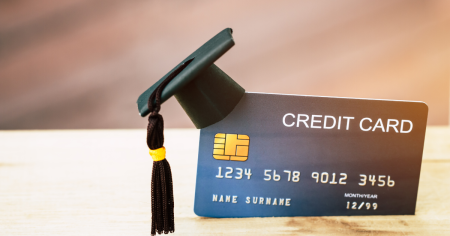Launching a startup business is exciting, but it can also be stressful if you need external money to keep the momentum going. While the U.S. Small Business Administration offers several small business loans for established companies, there are also some loan options available to new ventures. This guide will cover SBA funding for startups, as well as how to apply. We’ll also cover the SBA loan requirements for startups, and alternatives for capital if these loan types won’t work for your business.
SBA Loans For New Startups
While there’s no specific SBA startup loan, there are two financing options available to newer businesses: the SBA microloan and the SBA Community Advantage Program. Each one has its own loan terms and eligibility requirements, and can help serve brand new businesses that are just starting out.
SBA Microloan
An SBA microloan for startups allows businesses to borrow up to $50,000. The average loan size, however, is much smaller at $13,000. The maximum loan term is seven years. These smaller loans are geared towards early-stage businesses, so have less strict eligibility requirements than other SBA loans and traditional loan options.
Ideal for: Managing a new business and providing working capital.
Can be used for: Working capital, inventory, supplies, equipment, furniture or fixtures.
Cannot be used for: Paying existing debt, settling lawsuits, trade disputes, fines, penalties, or purchasing real estate.
Eligible businesses: For-profit small business or nonprofit child care center.
Application Process: Even when choosing to use an SBA loan to start a business, you’ll still need to apply directly through a lender. Lenders typically require collateral and a personal guarantee in order to get approved for a microloan. Read our guide to learn more about applying for an SBA microloan.
SBA Community Advantage Program
Historically underserved communities may be eligible for the Community Advantage Program for a SBA loan for their startup. It’s specifically designed to help new entrepreneurs in underserved markets obtain working capital. You can borrow up to $350,000 over the course of 10 years through Community Advantage Small Business Lending Companies (CA SBLCs) Originally begun as the Community Advantage Pilot program that sunsetted September 30, 2024, the Community Advantage Program is now a permanent part of the SBA 7(a) loan program, through new licenses issued to previous lenders in the program who can now issue 7(a) loans to traditionally underserved businesses.
Ideal for: New businesses located in low-to-moderate income communities that are less than two years old.
Can be used for: Purchasing commercial real estate that the owner occupies, leasehold improvements or renovations, purchase of inventory, equipment, furniture, fixtures, working capital, business acquisition, or debt refinance for any of the above.
Cannot be used for: Illegal businesses or businesses that do not meet the eligibility requirements, delinquent taxes, investment real estate, or personal use.
Eligibility requirements: Eligible businesses must be part of an underserved market. There are several ways to qualify for this designation, such as:
- Businesses located in Low-to-Moderate Income Communities, Empowerment Zones and Enterprise Communities, Historically Underutilized Business Zones, Promise Zones, Opportunity Zones or Rural Areas
- New businesses that have been operating for less than two years
- Veteran-owned businesses that are 51 percent or more owned and controlled by one or more veterans
- Businesses where more that 50% of the full-time workforce is low-income or resides in LMI census tracts.
Interested in exploring loan options, including SBA loan products like microloans and 7(a) loans, for your new business? Compare loan offers from multiple lenders with Lendio. Applying is free, and won’t impact your credit. Apply now!
SBA Loans For Established Startups
Once your startup has reached two years old, the options for SBA loans expand. The following options have their own eligibility requirements.
SBA 7(a) Loan
SBA 7(a) loan funds can be used for a number of purposes. The maximum loan amount is $5 million, and any loan amount over $25,000 requires collateral. Loan repayment terms can vary depending on what the loan is used for, but the repayment period is usually 10 years.
Ideal for: Businesses who have reached the growth stage.
Can be used for: Working capital, equipment, supplies, real estate, debt refinancing and ownership changes.
Cannot be used for: illegal or unqualified business as defined by the SBA, delinquent taxes, investment real estate or personal use.
Eligibility Requirements: Each SBA lender’s criteria may vary for an SBA loan. For example, some may require a higher credit score than other lenders. However, at minimum you must have owner equity and engage in for-profit operation in the U.S. or its territories. Read our guide for more information about SBA 7(a) loan requirements.
SBA 504 Loan
The SBA 504 loan is designed to help small businesses make major investments. Funds can be used for long-term assets such as real estate (including updates), land, equipment, machinery, or improvements to land, parking lots, and utilities. You can’t use the funds for working capital or inventory. If approved, you could borrow up to $5 million over a period of 10 or 20 years.
Best For: Purchasing or upgrading major fixed assets for your business.
Can be used for: Real estate, land, equipment, machinery, or improvements to utilities, parking lots, and the above.
Cannot be used for: Working capital or Inventory purchase.
Eligibility Requirements: Like 7(a) lenders, 504 lenders may set more stringent criteria to access an SBA 504 loan. In most cases, you will need strong credit history, finances, and multiple years in business to qualify. Read our guide for more details on SBA 504 loan eligibility requirements!
Explore Lendio to find the right SBA loan option for your startup, so you can start making the business moves you need to succeed.
How to Get an SBA Loan for Startups
In order to pursue an SBA loan for your startup and increase your chances of receiving a loan, you’ll want to do some preparation first. Here are the steps to take to prepare and submit an application for an SBA loan.
1. Calculate your Startup Costs
Knowing how much you need to borrow is your first step. Pull together the costs of starting your business, including one-time costs for permits, licenses, equipment, furniture and fixtures. You’ll also need to calculate recurring expenses, such as payroll, rent, and inventory for at least your first year in business.
Calculating your business startup costs will give you an idea of how much money you will need to get your business off the ground.
2. Write Your Business Plan
Many lenders will want to see your business plan, including research on target market, pricing structure, marketing costs, challenges, and your industry competition. Your startup costs calculation also belongs in your business plan, as well as projected income.
Without multiple years of profits to lean on in your application, you’ll need to use these tools to show that your business will be a success, so spend some time writing a business plan to help you secure funding.
3. Review SBA Loan Qualifications
All your hard work will be for nothing if you start the loan application process only to realize you won’t qualify. First, review the standard SBA loan requirements. You’ll need to:
- Be a for-profit business operating in the U.S.
- Meet the Small Business Administration’s definition of a small business.
- Be able to show your ability to repay the loan.
- Have tried to find alternative forms of funding before trying to get an SBA loan.
Because SBA loans are issued through lenders, you’ll also need to review common requirements for underwriting loans to improve your chances. Your personal credit score and business credit score should be improved as much as possible before pursuing a loan, and you’ll need to gather cash flow, sales projections and any available collateral you may have for the loan.
4. Choose a Loan and Lender for Your Startup
After reading some of the available options above, you probably have an idea of which SBA startup loan option will meet your needs. From there, you’ll need to find the best SBA lender for your startup..
The SBA provides a Lender Match tool to help you find a bank, credit union, or community-based lender that participates in your chosen loan program. You can always double check with a financial institution you’ve previously had a relationship with to see if they participate in the loan program you’re searching for.
You can also apply through Lendio to be matched with funding options that best suit your business needs. It takes 15 minutes to complete the application, and you’ll be put in front of 75+ lenders, including those who offer SBA loan options.
5. Prepare Your Loan Application
After you’ve chosen a lender, you’ll be ready to start your SBA loan application. You’ll need a lot of documentation to support your application, but there may be some variations on specific documents you need based on your loan program and lender.
Prepare all your business and personal documentation, including tax returns, financial statements, certificates and licenses, business history, business plan, contracts and more.
You’ll also need to complete some SBA forms, such as SBA Form 1919 Borrower Information Form, SBA Form 912, Statement of Personal History, and SBA Form 413, Personal Financial Statement.
Thankfully, your lender will be able to help you through the application process and make sure you have all the required documentation.
Online Business Loans
Many online lenders have flexible qualifications and multiple loan products for startups. If you’re looking for funding fast, exploring these options can be a great way to get funding, sometimes in as little as 24 hours. Curious what kind of loan options might be best for your business? Visit the Lendio Industry funding resource center to select your industry and see loan type recommendations for your business.
Small-Business Grants
Grants for small businesses are a way to avoid accumulating debt by offering capital that you don’t have to repay. The application process may be time-consuming, but if you can secure funds this way it may be worth it for your business.
Business Credit Cards
If you need help with everyday expenses while launching your business, business credit cards for startups are a great way to build your business credit score with responsible management and earn rewards that benefit your business.
FAQs
Yes, but new businesses are eligible only for certain types of SBA loans. Eligible companies can apply for an SBA microloan of up to $50,000 or a Community Advantage loan of up to $350,000. These options do not have a minimum time in business requirement like other SBA loans. While you can’t borrow as much, these smaller loans could help you reach your next level of business until you’re eligible to apply for more funding with a 7(a) or 504 loan.
Each SBA loan comes with its own eligibility criteria. On top of that, each lender also has its own eligibility requirements. That being said, the SBA microloan is designed to give credit access to newer businesses at a smaller level of financing. Another option to consider is an SBA Express loan. Certain lenders offer this type of loan, expediting the application process, so you know sooner whether or not you’ll be approved.
The SBA outlines several disqualifiers for its loan programs. Ineligible businesses include:
- Loan packaging
- Gambling
- Multi-sales distribution
- Real estate investment firms
- Commodities futures
- Rare coins and stamps dealers
- Lending activities
Get Funding for Your Startup
Now that you know the SBA loan options for your startup, as well as how to apply and some alternatives to consider, it’s time to figure out which loan option you’re going to pursue. Let Lendio take some of the guesswork out of funding your startup with the Lending Marketplace.
Simply fill out an application, and receive offers from our network of 75+ lenders to compare your funding options. There’s no impact to your credit score, and once you accept an offer, you could receive the funds you need for your startup in as little as 24 hours.
Quickly compare loan offers from multiple lenders.
Applying is free and won’t impact your credit.
Information provided on this blog is for educational purposes only, and is not intended to be business, legal, tax, or accounting advice. The views and opinions expressed in this blog are those of the authors and do not necessarily reflect the official policy or position of Lendio. While Lendio strives to keep its content up-to-date, it is only accurate as of the date posted. Offers or trends may expire, or may no longer be relevant.
Read the full article here











